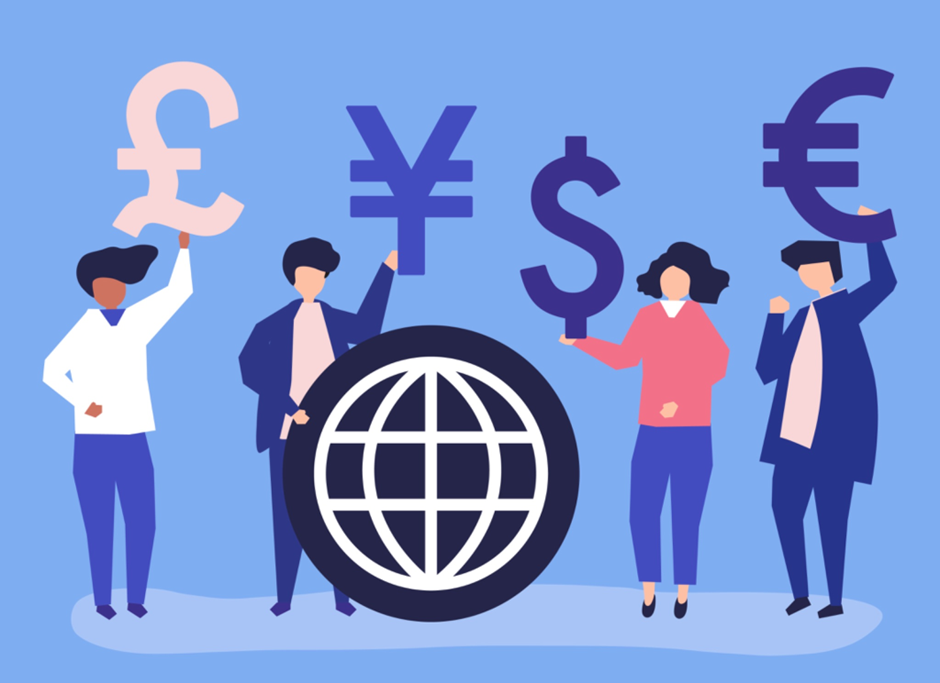The Role of Currency Converters in Travel: Tips for Getting the Best Exchange Rates
- martinrochevisionf
- Jun 26, 2024
- 3 min read
Author: Jérémie ANDRIANASOLO
Publication date: 26.06.2024
When traveling internationally, dealing with currency exchange can be a significant part of your trip planning and budget management. Currency converters play a crucial role in ensuring you get the best exchange rates, which can help you save money and avoid unnecessary fees. Here are some tips and considerations to help you navigate currency conversion effectively while traveling.
Understanding Currency Converters
Currency converters are tools that allow you to convert one currency into another based on current exchange rates. (e.g: convert EUR (€) to USD ($))These can be online tools, mobile apps, or physical kiosks and services found in banks, airports, and other locations.
○ Online Converters: Websites and mobile apps that provide real-time exchange rates.
○ Bank Services: Banks often offer currency exchange services, either in branches or through ATMs.
○ Airport Kiosks: These are convenient but typically offer less favorable rates.
○ Local Money Changers: Independent shops or kiosks that exchange money, often found in tourist areas.
Currency converters help travelers convert currencies using current exchange rates and come in various forms. Using these tools wisely ensures better exchange rates and cost-effective travel.
Eventually, currency converters are invaluable for travelers, enabling efficient currency exchange with various options like online tools, bank services, airport kiosks, and local money changers. Understanding the benefits and drawbacks of each type helps in securing the best exchange rates and minimizing fees. By planning ahead, comparing rates, and using cost-effective methods like bank services and credit cards with no foreign transaction fees, travelers can manage their finances better and enhance their travel experience.
Tips for Getting the Best Exchange Rates
Plan Ahead:
○ Research the current exchange rate before your trip using online currency converters like XE, OANDA, or Google.
○ Monitor rate trends to determine if it's better to exchange money before you leave or wait until you arrive.
Use Your Bank:
○ Banks usually offer better exchange rates than airport kiosks or independent money changers.
○ Withdraw local currency from ATMs at your destination using your debit card to get the bank’s exchange rate, which is often more competitive.
Avoid Airport Exchanges:
○ Currency exchange services at airports typically charge higher fees and offer less favorable rates due to the convenience factor.
○ Only use airport exchanges for small amounts if necessary.
Credit and Debit Cards:
○ Use credit cards that have no foreign transaction fees for purchases, as they often provide the best exchange rates.
○ Notify your bank about your travel plans to avoid having your card blocked for suspicious activity.
Compare Rates:
○ Use online currency converter tools to compare rates from different sources.
○ Check the rates offered by local money changers but be aware of potential hidden fees.
Avoid Dynamic Currency Conversion (DCC):
When using your credit card overseas, you might be given the choice to pay in your home currency rather than the local currency. This is known as dynamic currency conversion and usually comes with a high markup. Always choose to pay in the local currency.
Exchange Small Amounts:
If you need to use local cash, exchange small amounts at a time to avoid carrying large sums of money and potentially losing out if exchange rates improve.
Understand Fees:
Be aware of any service fees or commissions charged by the exchange service. Even if the exchange rate seems favorable, high fees can negate the benefits.
Practical Steps for Currency Exchange
Before You Travel:
○ Check your bank’s foreign exchange rates and fees.
○ Consider ordering foreign currency from your bank to take with you.
During Your Trip:
○ Use ATMs in well-known banks for better rates and security.
○ Keep receipts of your exchanges for tracking and potential refunds of unused currency.
After Your Trip:
○ Exchange any leftover foreign currency back to your home currency, either at your bank or through a service with good rates.
○ Alternatively, save small amounts of foreign currency for future trips or as souvenirs.
By being informed and strategic about currency conversion, you can minimize costs and make your travel experience more economical and enjoyable.
Conclusion
In conclusion, currency converters are essential for travelers, offering different options like online tools, banks, airport kiosks, and local money changers. By understanding and choosing the best methods, such as using banks and avoiding high-fee services, travelers can get better exchange rates, save money, and manage their travel budget more effectively.
You can also read about:







Comments